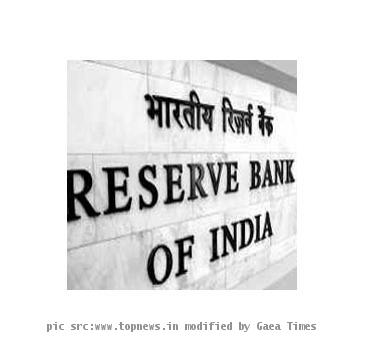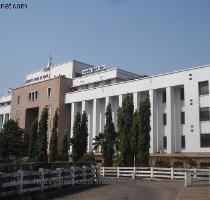PM releases Commemorative Coin Set; FM releases Mint Road Milestones: RBI at 75
By RBIThursday, April 1, 2010
|
"As we pursue our objective of achieving rapid and inclusive growth, our monetory and financial policies must be guided by three objectives. First, they must ensure that inflation is kept under control since it hurts the common man the most and also distorts economic signals. Second, they must ensure stability of the banking and financial sector since otherwise we run the risk of experiencing financial crises which always impose high cost. Third, they must meet the financial intermediation needs of rapid and inclusive growth." This was the key message of the Chief Guest Hon’ble Prime Minister of India Dr. Manmohan Singh at the Platinum Jubilee finale function of the Reserve Bank of India, held at the National Centre for the Performing Arts, Mumbai on April 1, 2010. Complimenting the Reserve Bank for serving our country with great distinction in its 75 years of existence, the Prime Minister said that the Bank has already shown commendable flexibility in allowing the system of banking agents to develop. It must remain committed to further expansion of banking services so that banks can touch the lives of more and more of our people, he said. Shri Pranab Mukherjee, Hon’ble Finance Minister of India, Shri K. Sankaranarayanan, His Excellency Governor of Maharashtra and Shri Ashok Chavan, Hon’ble Chief Minister of Maharashtra were the Guests of Honour. Former Governor and senior Executives of the Reserve Bank, banks and financial institutions, senior government officials, leading industrialists and other glitterati from the world of finance graced the occasion. Senior officials of the Reserve Bank were also present. Established on April 1, 1935, the Reserve Bank of India, country’s central bank, celebrated 2009-2010 as its Platinum Jubilee year. The year-long celebrations included several events with a series of learning events to showcase the Reserve Bank as a knowledge institution, a set of internal events involving current and former RBI staff to reinforce a sense of belonging and inclusiveness among members of the RBI family and the outreach programme. The focus of the outreach programme was financial inclusion and financial literacy. The top management of the Reserve Bank travelled to remote villages across the country to listen to ordinary people, see and understand how grassroot institutions operate and to learn of the challenges and opportunities for financial inclusion. Speaking at the platinum jubilee finale function, the Prime Minister termed his coming to Mumbai and the Reserve Bank as homecoming of sorts and recalled his days at the Reserve Bank as being extremely happy and warm. Dr. Man Mohan Singh was the Governor of the Reserve Bank between 1982 and1985. Briefly narrating how the Reserve Bank had occupied a pivotal place in the economy of India throughout the 75 years, he appreciated the way it had responded to new challenges and dilemmas and given a renewed thrust to deepening and ensuring stability in the financial markets. While the Indian banks or financial markets had not been affected directly by the recent meltdown, the crisis had drawn attention to the need to strengthen India’s financial system in a variety of ways, he stated and added that “on the one hand, we need to ensure that the financial system provides the finance needed for our development, especially for infrastructure development, on the other, we also need to develop long-term debt markets and to deepen corporate bond markets.” He further stressed the need for improving futures markets for better price discovery and regulation as also remove institutional hurdles to facilitate better intermediation. Shri Pranab Mukherjee, Hon’ble Finance Minster of India in his speech paid tribute to the institution by saying that the Reserve Bank of India’s story, in a sense, had been that of reorienting its policies and strengthening its roles to successfully cope with new challenges through these eventful years. The Reserve Bank’s policy responses and programmes in these recent years had indeed contributed significantly to improving the efficiency in the process of financial intermediation in India, enhancing the effectiveness in the conduct of monetary policy and creating conditions for integration of India’s domestic financial sector with the global system. The Finance Minister mentioned that the Reserve Bank’s role in maintaining a level of confidence in India’s financial system among all the participants and stakeholders, absence of excessive volatility that could have unduly and adversely affected real economic activity and in ensuring uninterrupted financial transactions in those trying times had been truly laudable and exemplary. He hoped that as a multi-tasking agency, the Reserve Bank would continue to play a significant role in our macroeconomic policy making and develop and display, as it always has, dynamism and flexibility in responding to the challenges faced from time to time. Earlier, in his remarks Dr. D Subbarao, Governor, Reserve Bank of India briefly traced the history of central banking and the Reserve Bank and said that platinum jubilee was a chronological milestone, an occasion for celebration in any organisation; but it was also an occasion for introspection. He highlighted four areas that the Reserve Bank must address going forward. The first area to focus upon, according to the Reserve Bank Governor, was to learn to manage both economic and regulatory policies in a globalising environment. The Reserve Bank also needed to reposition itself as a knowledge institution. “The idea is not to fight globalisation but to manage it to the country’s best advantage,” he said and added that “we need to learn from the best in the world, but adapt that to the demands and culture of a maturing and emerging economy. Being not only at the frontiers of domain knowledge, but oftentimes reinventing it, but all the time remaining sensitive to the core concerns of an emerging market economy.” The third big challenge for the Reserve Bank was to further and deepen financial inclusion. Elaborating on this, Dr. Subbarao said that “we all know from personal experience that economic opportunity is strongly inter-twined with financial access. Such access is especially powerful for the poor as it provides them opportunities to build savings, make investments, avail credit, and above all insure themselves against income shocks.” Financial inclusion was the next big idea, as it would at once promote both, growth and equity. The final challenge for the Reserve Bank was to become a more transparent and sensitive institution. “We are a public institution and have an obligation to deliver quality service at the cutting edge level. We need to listen to people, be sensitive to their concerns and redress their grievances. We also need to communicate effectively and credibly and explain the logic of our decisions and actions at both technical and non-technical levels,” the Governor said and concluded saying “A powerful lesson from the financial crisis has been that financial sector development is not, and cannot be, an end in itself. The growth of the financial sector is important only to the extent it improves the growth of the real sector. For all of us in the Reserve Bank - indeed even for those outside it - engaged in financial sector issues, it is important to remember that what we do in the financial sector adds value if and only if it makes a difference to the lives of ordinary people.” Commemorative Coin Set The Government of India has issued a set of five commemorative coins in the denominations of Re.1, Rs.2, Rs.5, Rs.10 and Rs.75 to mark the occasion of Platinum Jubilee of the Reserve Bank of India. The coins in the denomination of Re.1, Rs.2, Rs.5, Rs.10 will also be issued as circulation coins. In a set of five coins where the Re.1 and Rs.2 will be of Ferritic Stainless Steel, Rs.5 coin will be Nickel Brass, Rs.10 will be bimetallic and Rs.75 coin will be a Silver Alloy. Design of the coins Obverse side The face of all the coins shall bear the Lion Capitol of Ashoka Pillar in the center with the legend " mel³ecesJe pe³eles " inscribed below, flanked on the left upper periphery with the word " Yeejle " in Hindi and on the right upper periphery flanked with the word "INDIA" in English. It shall also bear the denominational value "75", "10", "5", etc., as the case may be, in international numerals below the Lion Capitol, flanked on the left lower periphery with the word " ©he³es " in Hindi and on the right lower periphery with the word "RUPEES" in English. Reverse side The reverse of the coin bears the emblem of the Reserve Bank of India, namely, the Palm Tree and the Tiger with inscription " Yeejler³e fjeJeõ yeQkeÀ " in Hindi, on the left periphery and in English "RESERVE BANK OF INDIA" on the right periphery word " Yeejle huewfìôece pegyeuer " in Hindi and "PLATINUM JUBILEE" in English along with year "1935-2010" is inscribed below the emblem. Mint Road Milestones: RBI At 75 ‘Mint Road Milestones: RBI At 75’, is a chronology compiled to mark the Platinum Jubilee year of the Reserve Bank of India. The chronology is preceded by an introductory which presents a brief history and also initiates the reader to the role and responsibilities of country’s central bank. The publication has been an attempt to put central banking in the context of the broader socio-political developments of the day, both in the world and domestically. The Reserve Bank’s journey is supported by visuals and vignettes that provide glimpses into its eventful past and the road it has traversed; they also help to bring alive the spirit of one of the venerable central banks in the developing world. Mint Road Milestones: RBI at 75 is a part of the Reserve Bank’s effort to advance financial education. It is hoped that the Book will be welcomed by all those interested in banking and finance - students, professionals and general public alike. Ajit Prasad Press Release : 2009-2010/1340 |

